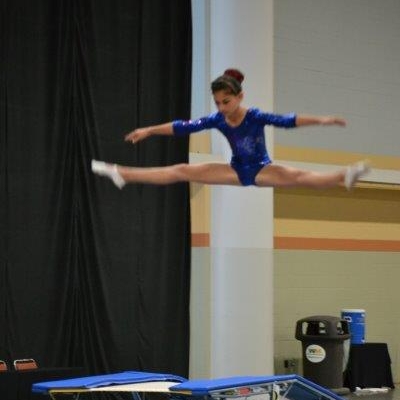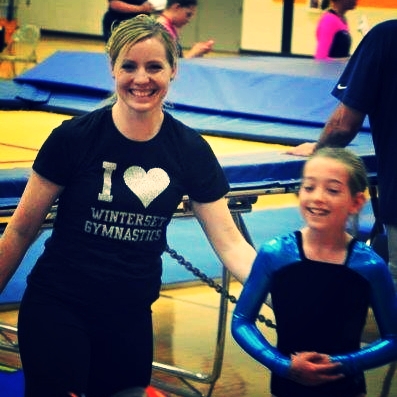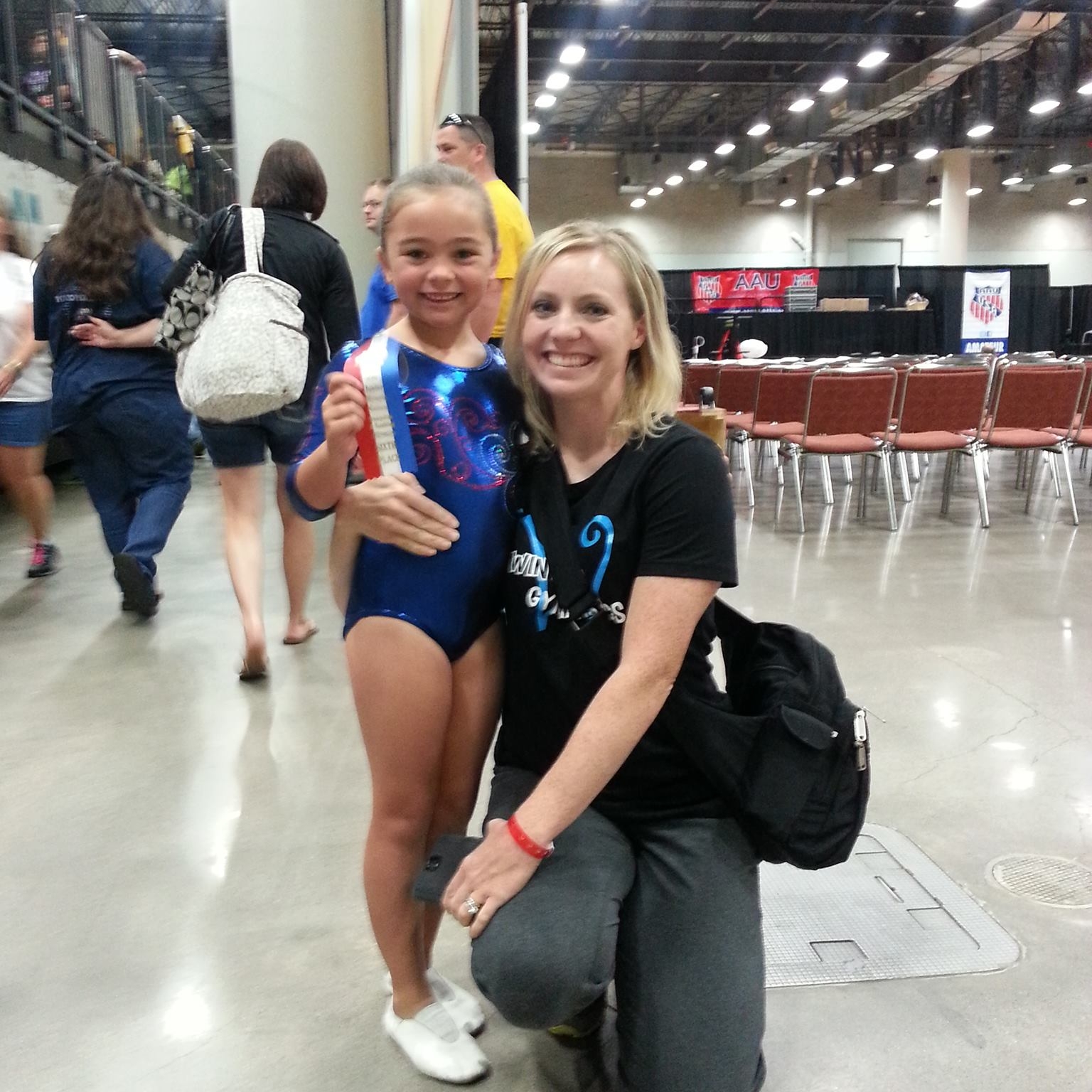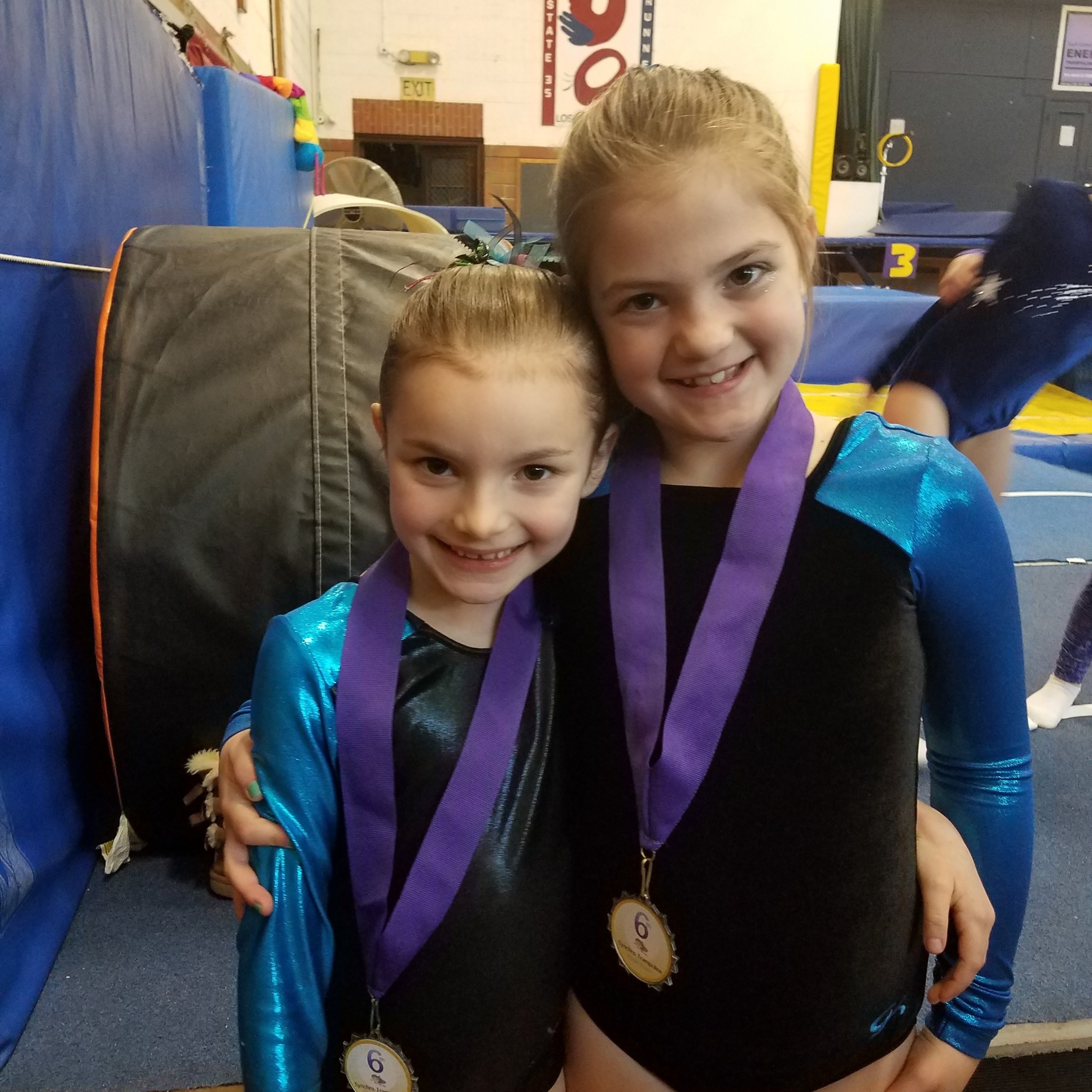We teach so much more than forward rolls and cartwheels....
At Winterset Gymnastics, we believe in teaching life lessons through the sport of gymnastics. Here are a few ways we feel gymnastics will benefit your child:
Self-Confidence : Through the challenge of learning gymnastics skills, the student gains confidence with each step they take. The improved self-confidence will transfer to other areas of their lives, including school.
Coordination & Fitness : Gymnastics helps develop better overall fitness level, coordination, strength, and flexibility. The better coordination and strength a child has, the more they enjoy exercise. In our fast-paced world, fitness is critical to the current and future health of our children. Gymnastics classes are full of activities and challenges that will make your child physically stronger and help develop a life long habit and love of exercise.
Hard Work Ethic & Determination : Gymnastics is a tough sport. The best thing about it is that kids have to earn the skills; we cannot just give it to them. The more they work, the more they achieve. Some skills are hard to master and require much persistence, so the children learn determination in continuing to work hard even when things get tough.
Social Skills : Gymnastics provides a weekly opportunity to develop social skills such as listening, following directions, taking turns, and respecting others.
Discipline : We have rules in our classes and coaches treat these rules as being very important. When we require our gymnasts to adhere to the boundaries at gymnastics that are in place to keep them safe, focused, and help them advance their gymnastics skills, they are better prepared for the world.
Politeness : Yes, we stress politeness in classes as the way to treat others. The coaches are kind and respectful to the students and the students are expected to treat the coaches and their classmates in the same manner.
Learning To Perform In Front Of People : In class, the students often practice their skills in front of others. As a result gymnastic students tend to be the first ones to volunteer in settings outside of gymnastics too; as they are no strangers to performance.
Coaches Caring : We care about every student and we believe deeply in the power of positive coaching through a winning combination of truth, specific praise, and constructive criticism. Hugs, high-fives, and words of encouragement is the basis of our program. Positive is POWERFUL!!
Classes at Winterset Gymnastics Promote Reading Readiness Skills!!
In the book, How to Teach Your Baby to Read, Glenn Doman states that a child below the age of five absorbs tremendous amounts of information at a remarkable rate. He continues to say that the young child has a tremendous amount of energy combined with a monumental desire to learn.
Furthermore, a child under the age of five can and wants to learn to read. According to Frost and Kissinger in, The Young Child and the Educative Process, and Spache in, The Teaching of Reading, some of the basic categories of reading readiness are listed below. The components of reading readiness are quite similar to the components of motor skill development.
Our Tiny Tumbler Program was created to promote the development of reading readiness, and gross and fine motor skills. Below are some examples of how we incorporate these ideas:
Visual differentiation- seeing and feeling the different mats and trampolines, how they can be used for different movements
Laterality- moving sideways down a beam, jumping sideways down the TumblTrak
Directionality- understanding left and right when learning a handstand and cartwheel
Hand-Eye Coordination- throwing a hoop over a cone
Distance, size, shape in space-how far to roll to stay on the mat and land correctly
Small muscle coordination- pointing toes during a skill or passing a bean bag to a partner
Large muscle coordination- learning gymnastics skills
Sensory discrimination- jumping with the right momentum to land on feet
Auditory factors- listening to the teacher, awareness, perception, and memory listening and understanding the teacher
Expressive language- explaining to family members after class what they did
Attention spans- ability to stay at a station and work on a set of skills
Imitating- watching the instructor or other children do the skills and repeat




